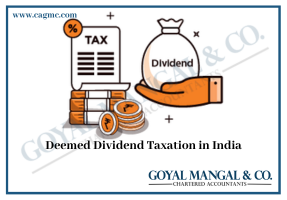 Insider trading refers to trading based on non-public material information that significantly affects the price of a company’s shares when realized using this source. In many countries, insider trading is not legal and offenders are severely prosecuted. However, the nature of material information concerning the internal and external environment has led to different laws and sanctions in different countries.
Insider trading refers to trading based on non-public material information that significantly affects the price of a company’s shares when realized using this source. In many countries, insider trading is not legal and offenders are severely prosecuted. However, the nature of material information concerning the internal and external environment has led to different laws and sanctions in different countries.
|
Table of content |
Definition of insider trading
Insider trading refers to the practice of buying or selling securities of a publicly traded company when you have material information that is not already public information. Material information means any information that can have a significant impact on an investor’s decision on whether to buy or sell a security.
By non-public information, we mean that this information is not legally available to the public and that only a handful of people have direct access to it. An example of an insider would be a company manager or someone in the government who has access to an economic report before it is released.
How does insider trading work?
- Inside information allows a person to profit or avoid a loss. In both cases, it is a misuse of that person’s knowledge or power.
- It is illegal because it gives an unfair advantage. Investors who are “in the know” have a chance to make more money. Others who do not have access to these secret tips do not have the same opportunity.
- The list of those tried and found guilty of insider trading includes company officials, employees, and government officials.
- Any person who brings inside information to someone else’s attention may also be charged and found guilty.
- Insider trading can also occur where no fiduciary duty is present. In these cases, the crime often comes to light because another crime has been committed. One such type of crime can be corporate espionage. An organized crime syndicate may use certain financial or legal institutions to gain access to private information. Those involved may be found guilty of insider trading if discovered. They may also be convicted of other charges for related crimes.
The history behind Insider trading
- Insider trading hasn’t always had a bad rap. In the early 20th century, it was neither against the law nor cared about. In fact, a Supreme Court decision once called it an “advantage” of being an executive.
- Business practices came under greater scrutiny after the stock market crash of 1929 and the Great Depression. A number of court cases and laws have clamped down on insider trading and even set severe penalties for those who engage in the practice. It was the legal entity responsible for creating the actual laws regarding the matter.
- The law did not fully prohibit insider trading, or indeed define it, but the SEC was able to criminalize certain actions, one at a time, in a series of rules. Any fraud involved in the sale of shares was against the law, so a rule was added to cover purchases as well. The result was a piecemeal set of rules that were difficult to navigate. Consequently, there were limits to what the SEC could do to enforce the rules. That has since changed. The SEC says it has filed insider trading complaints against hundreds of people and financial professionals, including lawyers, corporate insiders, and hedge fund managers.
Penalties for insider trading
If someone is caught insider trading, they may face jail time, a fine, or both. According to the SEC in the US, a conviction for insider trading can result in a maximum fine of $5 million and up to 20 years in prison. According to SEBI, a conviction for insider trading can lead to a fine of INR 250,000,000 or three times the profit of the trade, whichever is higher.
Real-life examples of insider trading
- Martha Stewart
Shares of ImClone plummeted when it was revealed that the FDA had rejected its new cancer drug. Even after such a drop in the share price, CEO Samuel Waskal’s family seemed unaffected. After Martha Stewart received the preliminary rejection notice, she sold her stake in the company’s stock when the stock was trading in the $50 range, and the stock subsequently fell to $10 in the following months. She was forced to resign as CEO of her company, and Waskal was sentenced in 2003 to more than seven years in prison and fined $4.3 million. - Reliance Industries
The Securities and Exchange Board of India banned RIL from the derivatives sector for a year and fined the company. The stock market regulator accused the company of trying to make profits by circumventing regulations on its legally permissible trading limits and undercutting the price of its shares in the cash market. - JosephNacchio
Joseph Nacchio made $50 million by floating his shares on the market while, as head of Qwest Communications, he provided positive financial projections to shareholders at a time when he knew the serious problems the company was facing. He was convicted in 2007. - Yoshiaki
In 2006, YoshiakiMurakami made $25.5 million using non-public material information about Livedoor, a financial services company that planned to acquire a 5% stake in Nippon Broadcasting. His fund acted on this information and bought two million shares.
Conclusion
The detailed rules regarding insider trading are complicated and generally vary from country to country. The definition of “insider” can vary significantly from jurisdiction to jurisdiction. Some may follow a narrow definition and consider only people in the company with direct access to information to be “insiders.” On the other hand, some may also consider people associated with company officials to be “insiders.”







